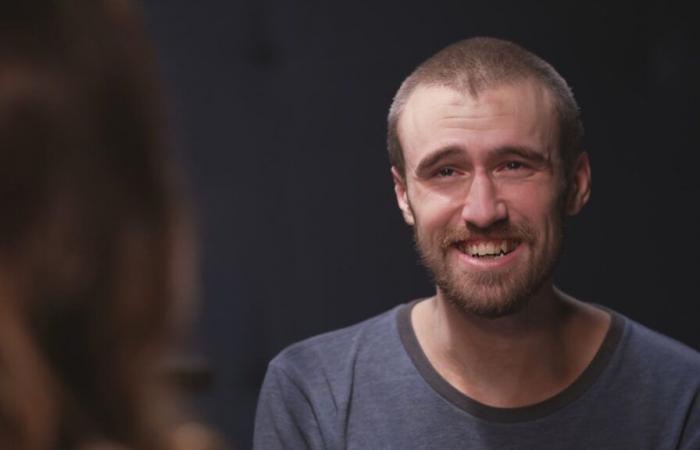For years, Sally Lane and John Letts feared their son Jack was dead – and no one told them.
This text is a translation of an article from CTV News.
Their fears lingered in my mind as I traveled for days through a perilous region of northeastern Syria, badgering Kurdish officials to honor their promise to let me interview him. By the fifth day, the situation became clear: they had no idea where their oldest foreign detainee was.
Jack Letts, 29, who has been detained for seven and a half years without ever being charged with a crime, was lost in the maze of secret prisons where suspected ISIS members are held.
“Let me languish in a prison in Canada. At least I could see my mother once a year.”
-Jack Letts
This region is dotted with makeshift Kurdish-run prisons, which house around 10,000 people suspected of belonging to ISIS from more than 70 countries.
In the absence of legal systems to deal with foreign nationals, Kurdish authorities insist that it is up to the detainees’ countries of origin to take them back.
But many countries, including Canada, have refused to do so, citing national security risks. This situation has created a global standoff, with detainees like Letts caught in indefinite detention.
On the eighth day, my local producer, Mustafa al Ali, finally got the call we were waiting for: they had found Jack Letts. But finding him was not without risk. He had been transferred to a secret prison on the outskirts of Raqqa. We traveled for six hours through known ISIS hotspots, passing dozens of checkpoints along the way.
Kurdish officials refused to name the prison or give its address. Instead, a car joined us on the outskirts of the former ISIS capital. We followed her to an industrial complex – an unnamed prison.
Inside, we were taken to the basement and told to set up our cameras in a soundproof interrogation room with black, padded walls. I stood outside while masked guards dragged a blindfolded and handcuffed Jack Letts down the hallway. Barefoot and disoriented, Mr. Letts was guided into our makeshift studio.
His face lit up when I told him I was from Canada, and he broke down when I explained that I had called his mother to tell her he was alive. Through tears, he told me, “I saw her in a dream a few days ago. I’m sorry… Wait, that wasn’t a few days ago. I think it was today or yesterday. It was… It was good to see her. I’ll try to pull myself together.”
I asked him why he was barefoot, but since his guard was sitting behind him, he made me understand that he couldn’t tell me. He shook his head – no – when I asked if anyone had told him who I was or why I was there.
Jack Letts said he was happy to be interviewed, but I suspect he didn’t really have a choice. He was taken from his cell and placed in front of me, unable to speak freely without fear of punishment. At one point he said, barely in a whisper, “I wish I could talk outside of prison. That would be good.”
The latter has been here so long that he has forgotten many English words, often asking his jailers for translations.
From Oxford to ISIS-occupied territory
Born to a Canadian father and a British mother, Jack Letts held dual British and Canadian citizenship, until he was stripped of his British citizenship in 2019. He still holds Canadian citizenship.
Once a suburban teenager in Oxford, England, Mr Letts was captured trying to flee ISIS territory in 2017. He was stripped of his British citizenship in 2019 after being accused of joining the armed group ISIS . For the past seven and a half years, he has been trapped in a detention limbo.
Canada is now his only hope of leaving Syria. Despite protests, legal challenges and petitions organized by his parents, the Canadian government has shown no interest in repatriating him or the eight other known Canadian men who are detained in the region.
Jack Letts converted to Islam at the age of 16. In 2014, at the age of 18, he became one of an estimated 50,000 foreigners who traveled to Syria, often lured by ISIS propaganda. The terror group has presented itself as the only force capable of deposing Syrian dictator Bashar al-Assad, whose brutal crackdown on pro-democracy protests has devastated the majority-Muslim country.
“Was I a member of ISIS? No,” he told me. “There are a lot of things I said a long time ago because I was afraid. I can’t say everything because I’m in prison. This may be my last chance to get the truth across.”
Diagnosed with obsessive-compulsive disorder as a teenager, Mr. Letts says he became consumed with the plight of Syrian Muslims as the country descended into civil war.
“I was obsessed,” he admitted. “I spent hours watching videos of people being blown to pieces. I felt like a hypocrite, sitting in a comfortable house doing nothing.”
A journey into darkness
Mr. Letts says his trip to Syria began with a naive belief that he could help.
“I talked to people who gave me the impression that ISIS was not what people were saying,” he said in an interview. “I know this may sound ridiculous. ISIS being what it is, they told me they were the only ones really fighting for the Syrians. But as soon as I arrived, I realized they weren’t what I thought they were. They said we had to go to training camp. And I said I wasn’t going to pledge allegiance…and I left them right away.”
He describes how he became an enemy of ISIS after rejecting their ideology inside their territory. “I was imprisoned by them three times. They told me they were going to kill me, but they didn’t,” he said. “I lost over 20 close friends because of them. I still can’t believe I survived.”
To understand the horrors of ISIS detention, we visited one of their abandoned prisons. Tight, stuffy cells contained chilling remains of the former occupants. Graffiti scrawled in English alluded to the foreign captives who rarely left alive.
A life in limbo
For Kurdish authorities, Jack Letts is part of a larger problem: thousands of foreign ISIS suspects remain in detention, unclaimed by their home countries. Without British citizenship, Canada is now his only hope. But political and public support is weak.
Human rights advocates say leaving detainees like Letts in indefinite detention violates international law and undermines the rule of law: innocent until proven guilty. They also warn that these prisons, which are often under-resourced and overcrowded, risk becoming breeding grounds for the spread of extremism.
He acknowledged that by returning to Canada, he would have to face justice. “I wouldn’t mind if they put me in prison for 100 years.”
-A text by Avery Haines for W5 CTV News-






